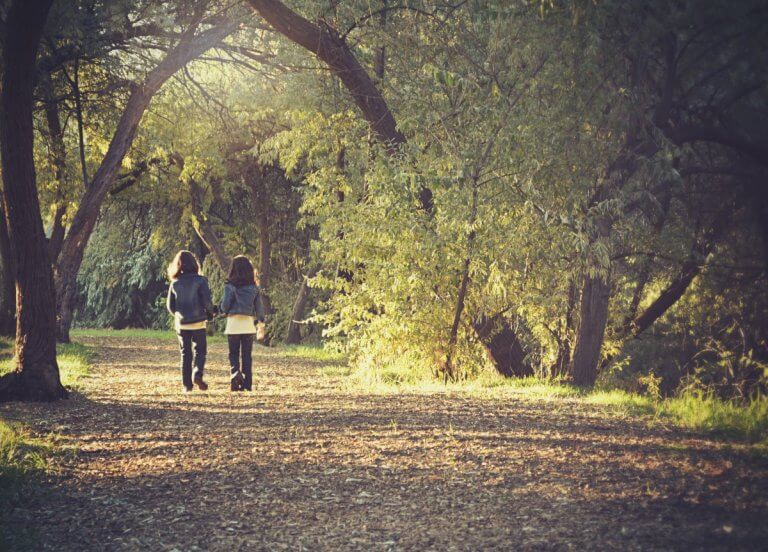
In today’s world of smartphones, television, social media, and video games, it’s no secret that children (and adults, for that matter) are not being as active as they should be.
People are staying indoors more than ever. A study done by the Environmental Protection Agency (EPA) found that the average American spends 93 percent of their life indoors. It’s a pattern that’s growing worldwide, causing negative effects on our mental and physical health.
In fact, a recent study by the National Institute of Health found that increased screen time on smartphones, tablets and video games negatively affects adolescent brain development, and kids who spend over two hours a day on screens actually obtain lower scores on thinking and language tests.
Parents are not all to blame, as in school, where kids spend most of their time, it appears that children and young adults are not getting out enough either.
Project Dirt, working with Learning Through Landscapes, highlighted in a report published last year that two-fifths (40 percent) of US Primary Schools provide less than half an hour of outdoor time a day, and more than four-fifths (89 percent) get less than an hour.
In comparison, two-fifths (40 percent) of UK’s Primary Schools get more than an hour of playtime a day, not including lunchtime.
Despite the fact that UK schools provide more outdoor time than American schools, teachers still don’t feel it’s enough. The survey found that more than eight out of ten (81 percent) teachers in the UK don’t think there is enough learning outdoors.
So what can be done to reduce the negative effects of staying indoors and being glued to our screens?
According to Brynn Schmidt at The Outbound Collective, outdoor activities like hiking and camping in the wilderness help develop children into well-rounded young adults.
Although kids can see plenty of wildlife and natural landscapes on TV or via the internet, there’s nothing like experiencing the real thing.

Getting up close and personal with nature teaches children how to appreciate it. Source: Shutterstock
Regularly taking students out to a park or for a hike allows them to get learn about nature first-hand, whether it’s flora and fauna, insects, animals or viewing the sunset.
This instills in them a love for nature at an early age, and fosters healthy habits they’re likely to carry on in their adult life. Plus, it forces them to keep away from iPads, iPhones and video games.
Schmidt wrote, “I have found that getting my high school son out to climb, hike, and backpack has been the only thing that has provided him with some balance and perspective. Now that he is climbing regularly and hiking a lot on weekends too, he is starting to view school through a more realistic lens.”
He also argues that since there is no real sense of failure like in academic-based activities, children can let loose and enjoy the activity more. After all, kids need to relax, too.
He stated, “There are so many books out there right now about the next generation and the lives they are living with the pressures that surround them and the belief that they cannot fail. The outdoors is a perfect place to learn to try new things. It takes a lot of work to get strong at wilderness activities, but there really is no failure – you just try again.”
Plus, being outdoors is good for kids’ brains and general health. Not getting enough sunshine can lead to Vitamin D deficiencies. Vitamin D helps in fighting infections, maintaining strong bones, and ensuring kids have more efficient brain and physiological functioning.
Exercise and physical activity also helps by increasing endorphin and serotonin levels, which regulate mood and social behavior, appetite and digestion, sleep, and memory.

Are your kids getting enough Vitamin D and exercise? Source: Shutterstock
Another important reason why parents should introduce kids to nature and the outdoors is to teach them about conservation.
Our kids are the next generation, and they should learn early on to appreciate and preserve the natural world. Being outdoors is a great opportunity to teach them ‘green’ rules about littering, respecting animals in their natural habitat, and so on.
Even if you live in a city with limited chances to get outdoors, find another way to get your kids connected to nature.
You can take them to the zoo, a city park or garden, a habitat, organise weekend hikes or camping trips, or look up nature programmes organised for kids in your area.
It will benefit them in the long run, making them well-rounded people and better students, plus you get to enjoy some quality time with your kids and get yourself outdoors, too!







